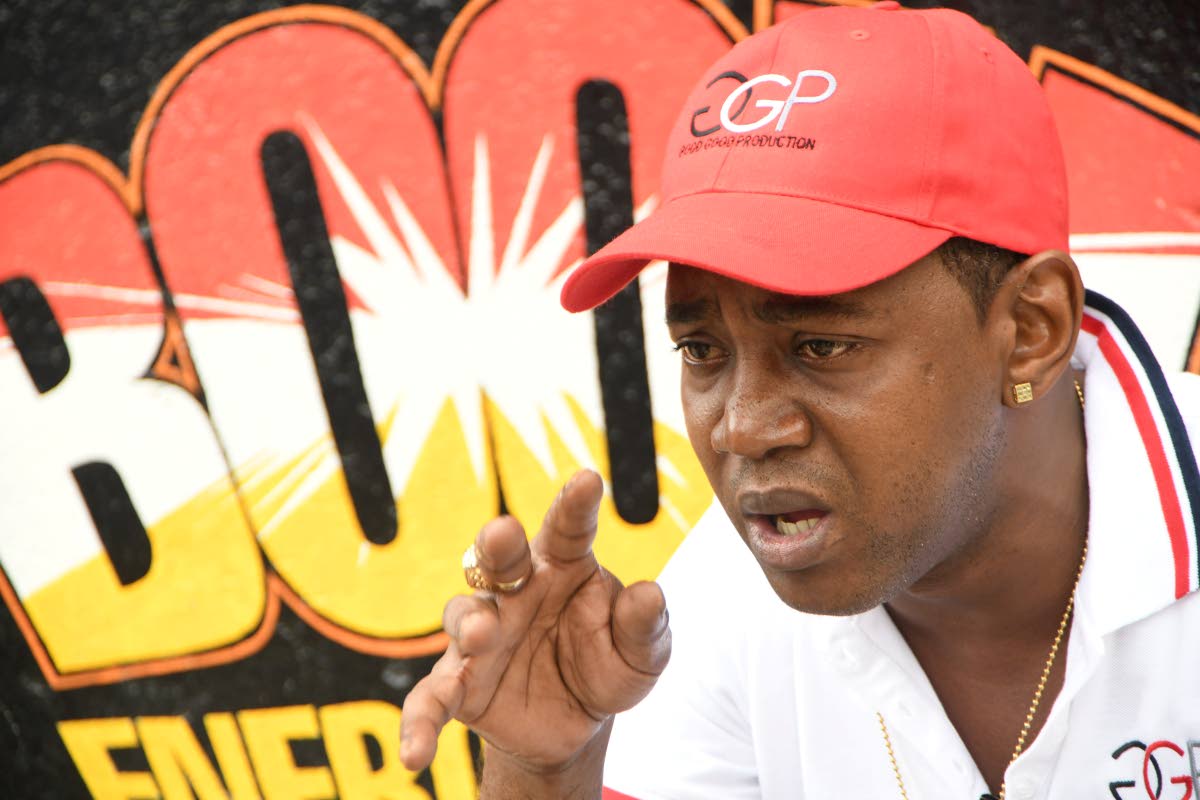Some Young Dancehall Artists Still Refusing To Voice For ‘Big’ Producers Says Boom Boom

Billboard selector Boom Boom says the issue of Dancehall artists refusing to voice for certain producers and vice-versa, has worsened with time.
Boom Boom was speaking during an interview with veteran journalist Anthony Miller on Television Jamaica’s The Entertainment Report, which was aired on Friday night.
His comments came after Miller told him he thought the days of polarization between the artist and producers were over. According to him he has had personal experience in observing the bitterness and the covetous behaviours of some of the players in the industry.
“Mo man, it nuh ova. It wickeda now man… Jealousy, bad mind, envy and grudge,” he said.
According to Boom Boom, some of the young artistes have flatly refused to voice for “big name” producers such as Jordan McClure of Chimney Records as well as DJ Frass.
“No juggling nuh deh deh again. Nuff a dem young artiste yah Missa Milla. Wha day yah Jordan link mi an seh Boom, get two a dem man yah fi voice pon mi riddim. And mi reach out to dem and dem seh: ‘mi naw voice fi Jordan’. Same ting wid Frass. Same ting wi di producer dem weh have name. Couple a di yute dem naw voice fi dem,” Boom stated.
“Dem nahve nobaddy roun dem deh tell dem di right ting. A like dem yute yah nuh love di music. Dem yute yah just deh inna di music fi just meck a quick money and just deh inna di music an know seh ‘yow, mi have two hit song mi a get two dub plate work and a it dat’”, the BMW riddim producer said.
When Miller told Boom Boom that the artists were probably shying away because they are “on top right now” and “are the big names” Boom Boom poured cold water on the suggestion.
“Nuff a dem weh yuh si a gwaan right now, dem nah last a year,” he said.
Boom Boom’s sentiments were echoed by UK-based Afrobeat producer Benjybwoy in a November 2019 Gleaner newspaper article.
Benjybwoy had said the lack of unity in dancehall was a serious issue affecting the genre as “certain artistes will not voice with certain producers and vice versa and the whole juggling become wishy-washy”.
However, other different explanations have been given as to why some artistes refuse to work with some producers over the years. In October 2014, Kyng Midas producer Notnice told the Jamaica Observer that his association with controversial acts such as Vybz Kartel and Alkaline have caused some artistes to shy away from him.
The One General producer had also said at the time that the issue was one of the biggest challenges he faced in the industry.
“The same thing that happen with Vybz Kartel is happening with Alkaline. They believe that I just want to work with a particular act, but it’s not like that. I just work with who will work with me,” he told the newspaper.
“Sometimes when I link some of the artistes, they tell me to send them the rhythm. They say they are ready to voice on it, but they don’t. And they don’t return my calls or respond to the messages either…,” the producer, whose given name is Ainsley Morris had said at the time.
Over the last several years, there many concerns have been raised about the various ‘camps’ being formed by artistes, resulting in situations where juggling riddims, which would have at minimum 12 artistes voicing on them, were now confined in most cases to a handful, as artistes refused to voice on the same productions as their musical rivals.
Among the most memorable juggling riddims over the last 30 years were several from Dave Kelly’s Madhouse productions. These include the unforgettable Pepper Seed in 1994; Joy Ride in 1996, Buy Out also in 1996, Showtime in 1997, Bruck Out in 1999 and Don Carleon’s legendary Drop Leaf in 2005.
The last huge riddim, which attracted a massive number of artistes and had a slew of hits, was Overproof, which was created by producers Justus Arison and the late Patrick ‘Roach’ Samuels of JA Productions. Overproof had featured songs from 25 artistes, including Mavado’s Settle Down, Konshens’ Bad Gyal, Tifa’s Dash Out, and Khago’s Tun Up Di Ting.
